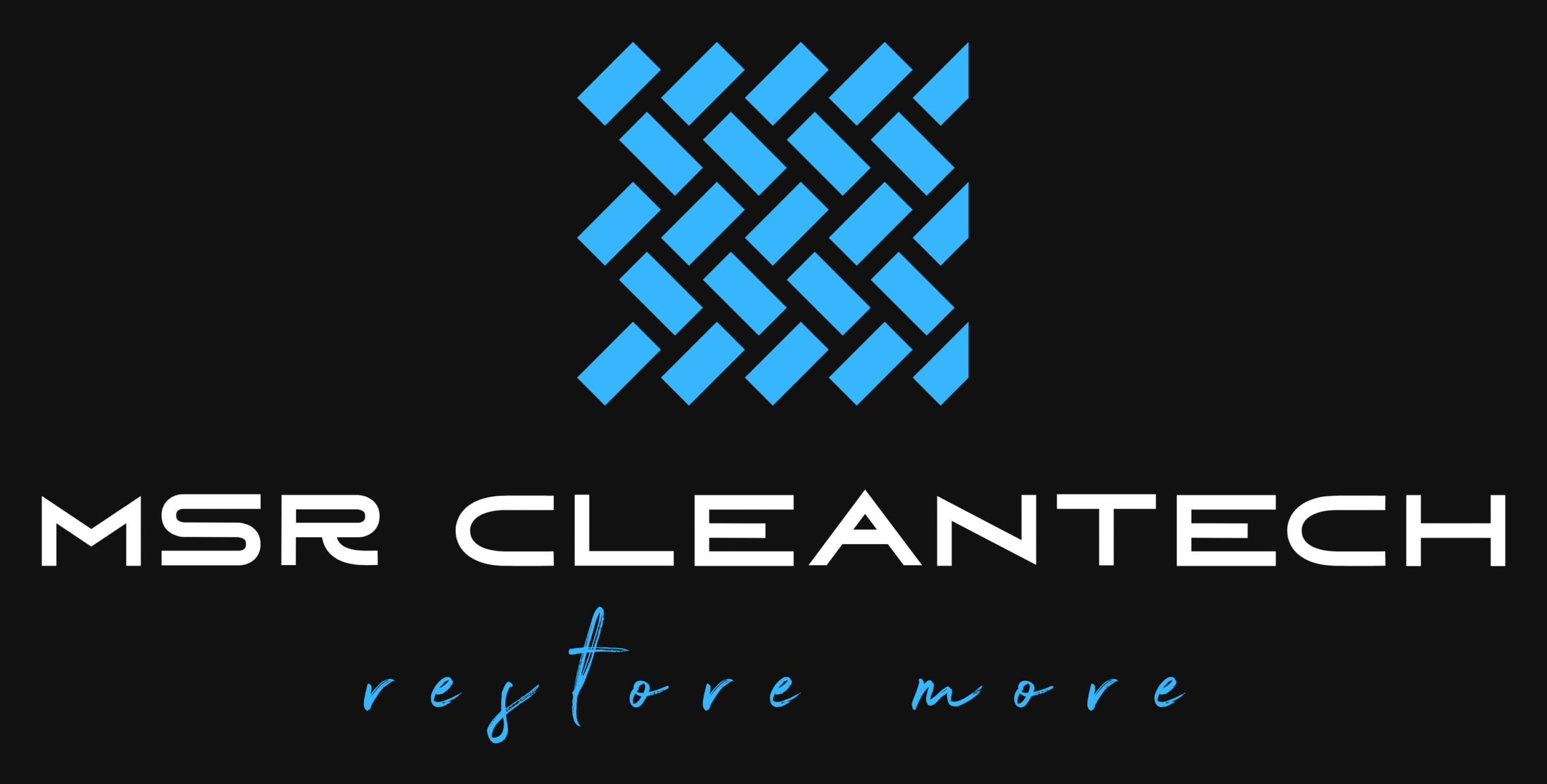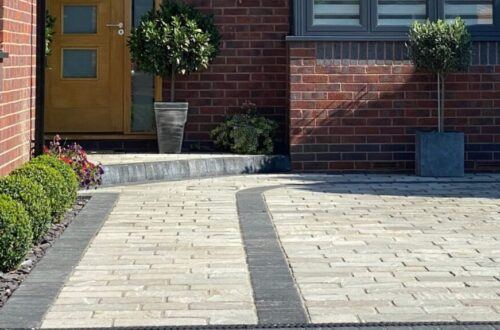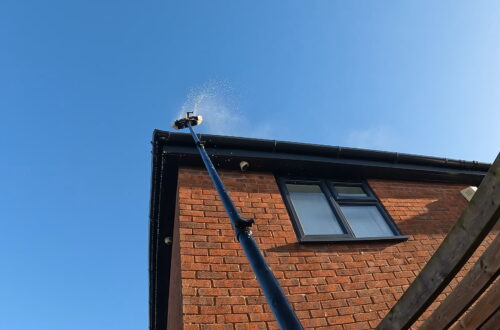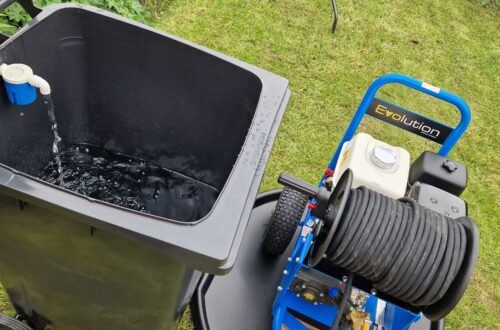Seal Your Driveway or Patio? Here’s What You Should Know.
In this article, we’ll explore the pros and cons of sealing driveways and patios, aiming to give you insights that will help you decide if it’s the right choice for you. When it comes to home maintenance, sealing driveways and patios is often overlooked, yet it offers several advantages—from extending the lifespan of these surfaces to enhancing your home’s curb appeal. Here’s why, when done correctly, sealing your driveway and patio can be a worthwhile investment.
The Pros Of Sealed Patios and Driveways
Protects Against Cracks and Erosion
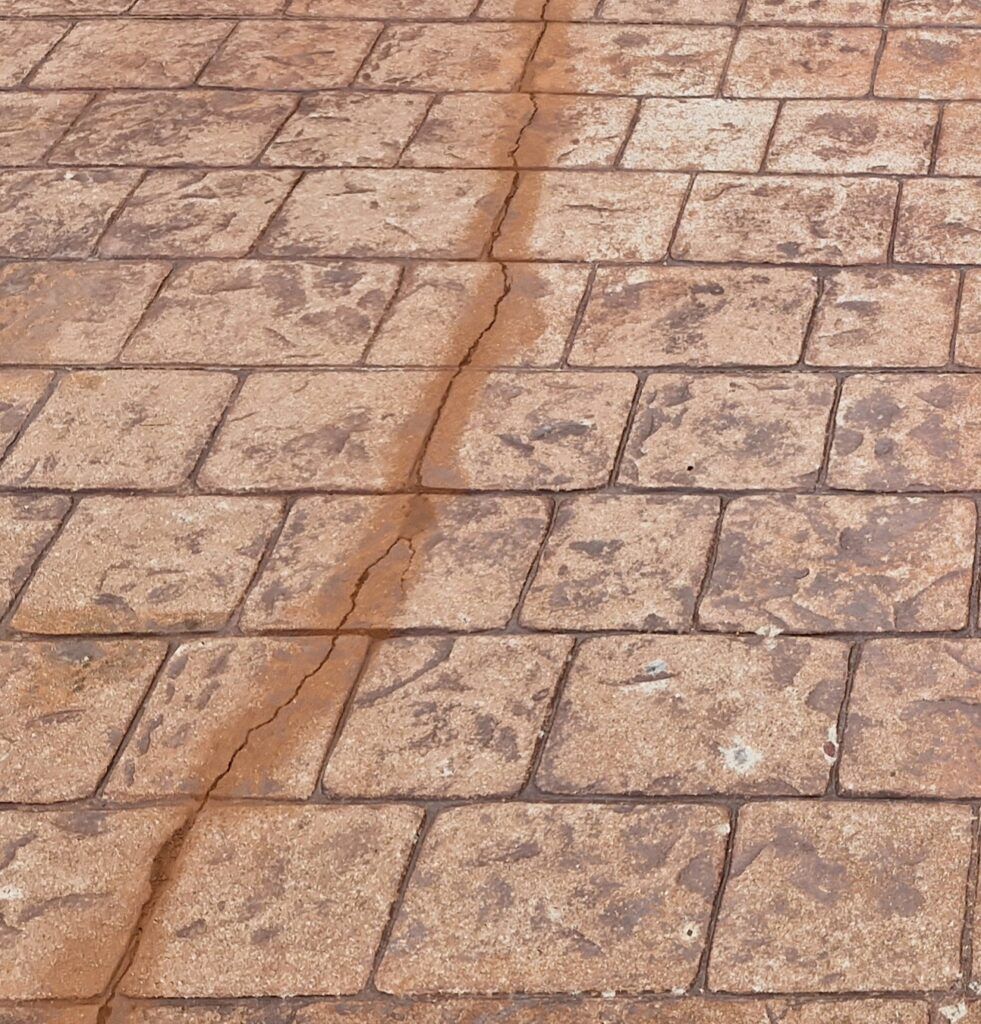
Applying sealer to a new or recently cleaned surface adds a protective layer that offers multiple benefits. Sealing can help prevent small cracks from forming or expanding, which in turn reduces the risk of erosion over time. By filling in tiny pores and gaps, the sealer keeps water and other elements from penetrating deep into the material, preserving its structure for a longer period. Since water cannot seep into the material, it also safeguards against water expansion in harsh climates, effectively lowering the risk of cracking and erosion from the outset.
Prevents Organic Growth
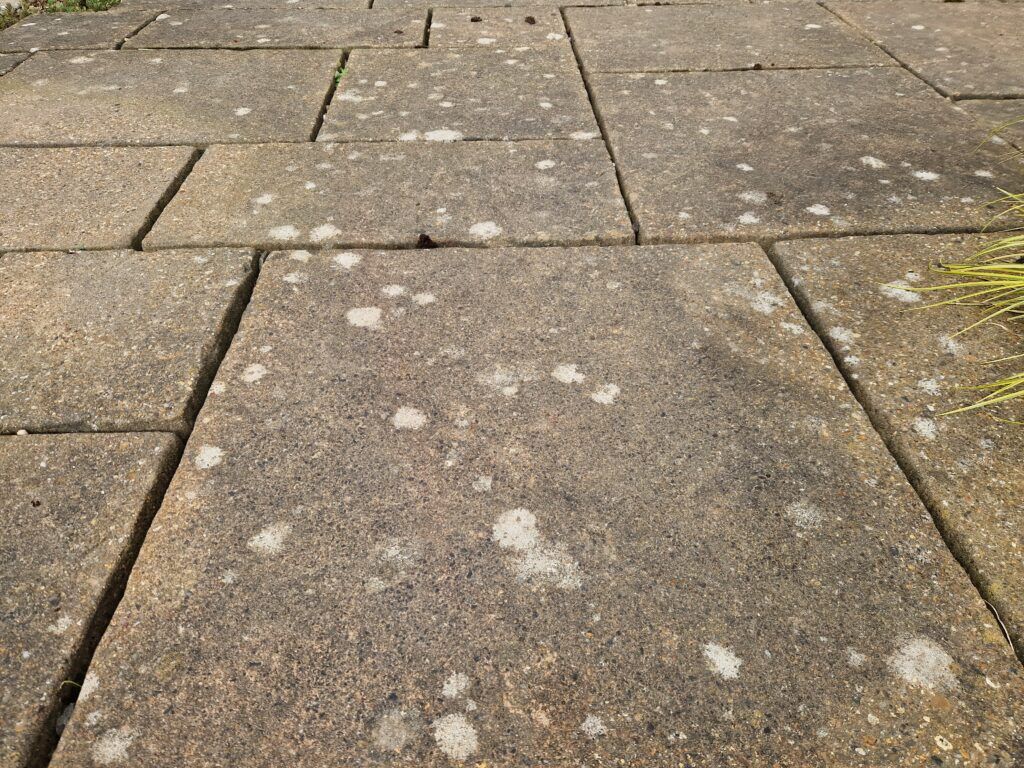
A common issue with unsealed driveway or patio surfaces is organic growth, such as lichens, black spot, and other types of algae. These are among the main culprits that can turn a clean, attractive surface into something much less appealing over time. Sealing a surface after it has been cleaned helps prevent this organic growth by reducing moisture levels within the material, making it less hospitable for algae and similar growths.
Easier to Clean
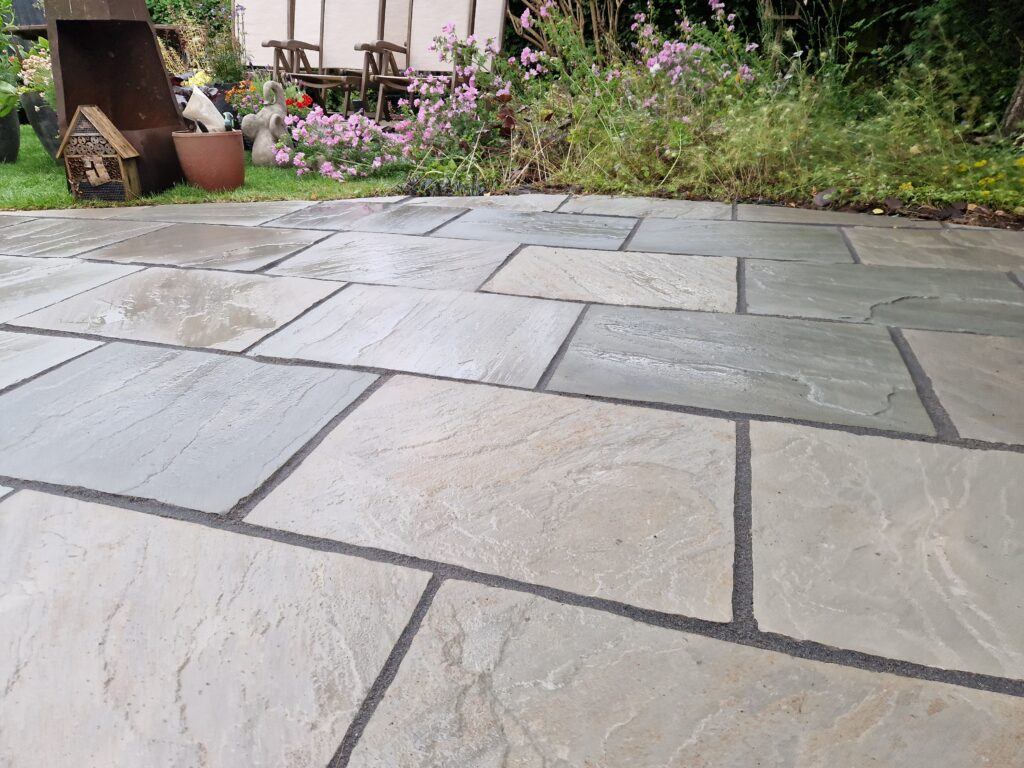
Thanks to the protective barrier that sealing provides, cleaning the surface becomes much easier. A light, soft wash with minimal, if any, cleaning products is usually enough to remove marks or stains. This means the surface requires less intensive cleaning and can be maintained less frequently.
Weed Prevention
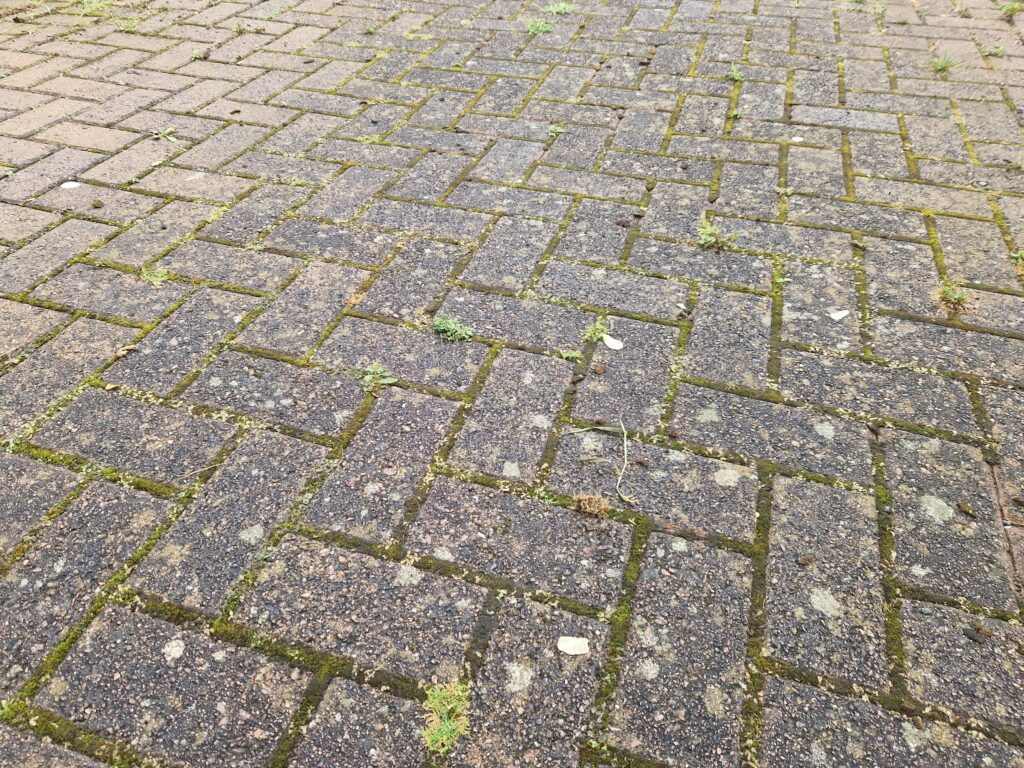
Block paving, in particular, tends to become quite weedy over time, and anyone with a block-paved driveway knows this doesn’t give off the best look when weedy. Sealing can definitely help reduce the growth of weeds, as the sealer essentially blocks more of the moisture from entering the surface. While it’s not a guarantee that weeds won’t appear here and there, it certainly helps due to the moisture-prevention aspect of applying sealer to a surface prone to weed growth.
Mitigates Heavy Staining Like Oil Stains
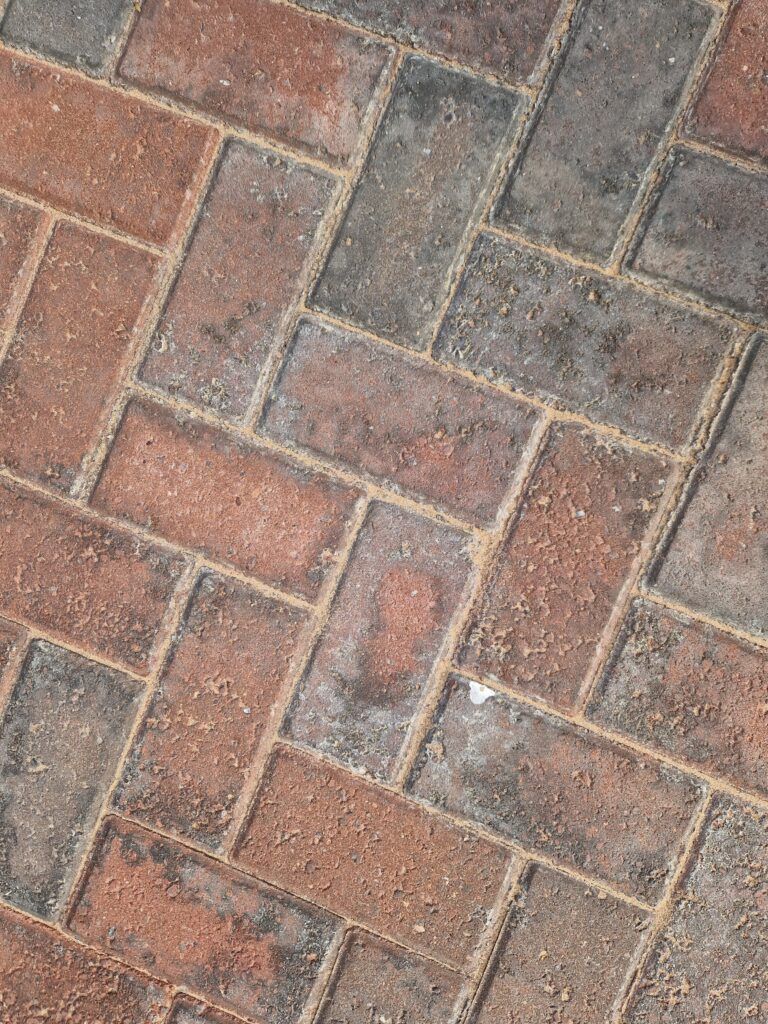
Oil stains are among the toughest stains to remove from any surface. Thanks to the protective layer provided by the sealer, you’ll have more time to clean up spills before they seep through and leave a lasting stain.
How Sealing Can Boost Your Homes Curb Appeal
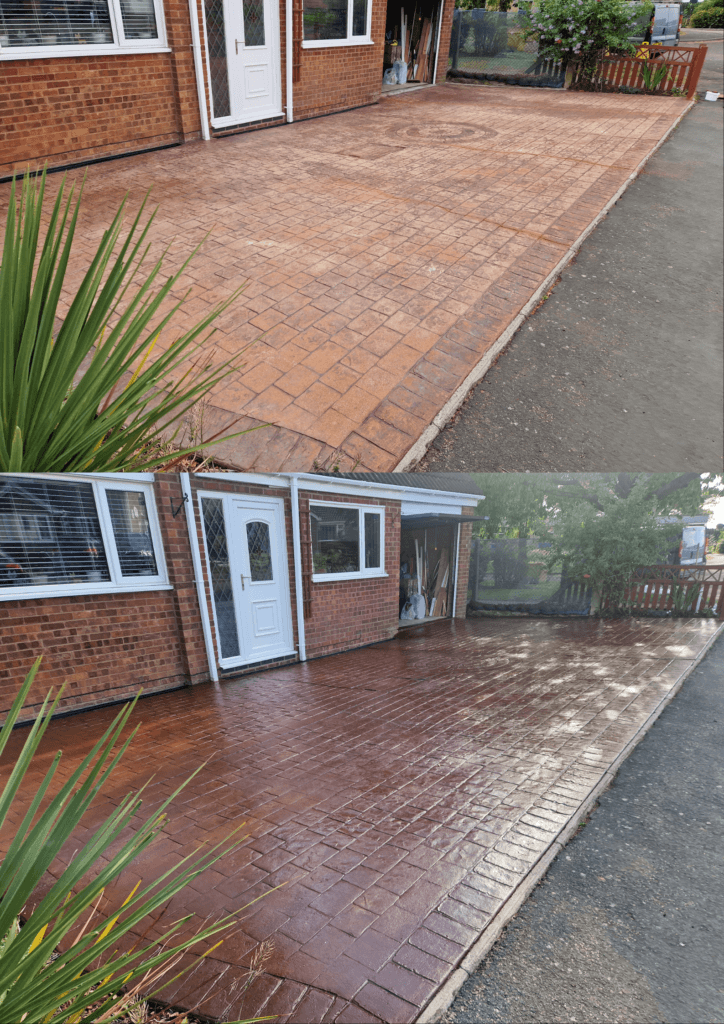
Matte or Gloss Finishes
Sealing your driveway or patio helps preserve its fresh look much longer than if left unsealed. There are generally two types of finishes you can achieve with a sealer. One is a matte finish, which subtly protects without visibly altering the surface, yet still provides all the advantages mentioned earlier. The other option, often preferred, is a gloss or “wet look” finish, as many people find driveways and patios more attractive when they appear wet.
This is because water enhances colour depth, giving surfaces a richer, more vibrant look. Whether you opt for a matte or gloss finish, sealing will always boost a home’s curb appeal by keeping these surfaces looking better for longer.
How A Sealed Surface Will Look Better For Longer
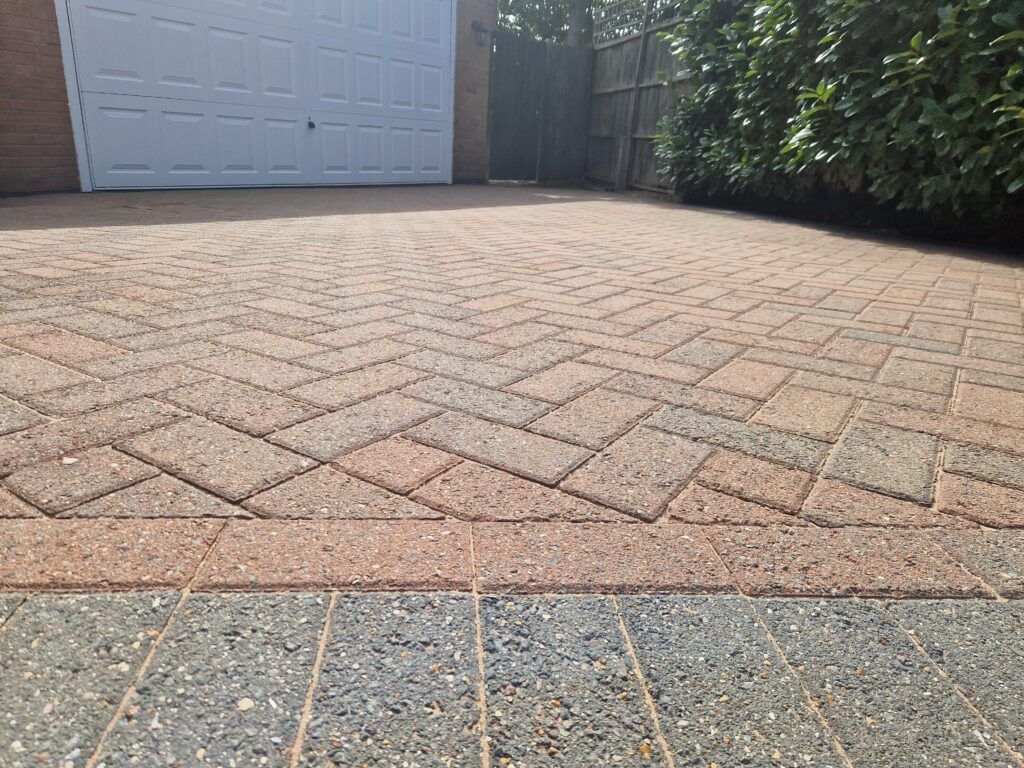
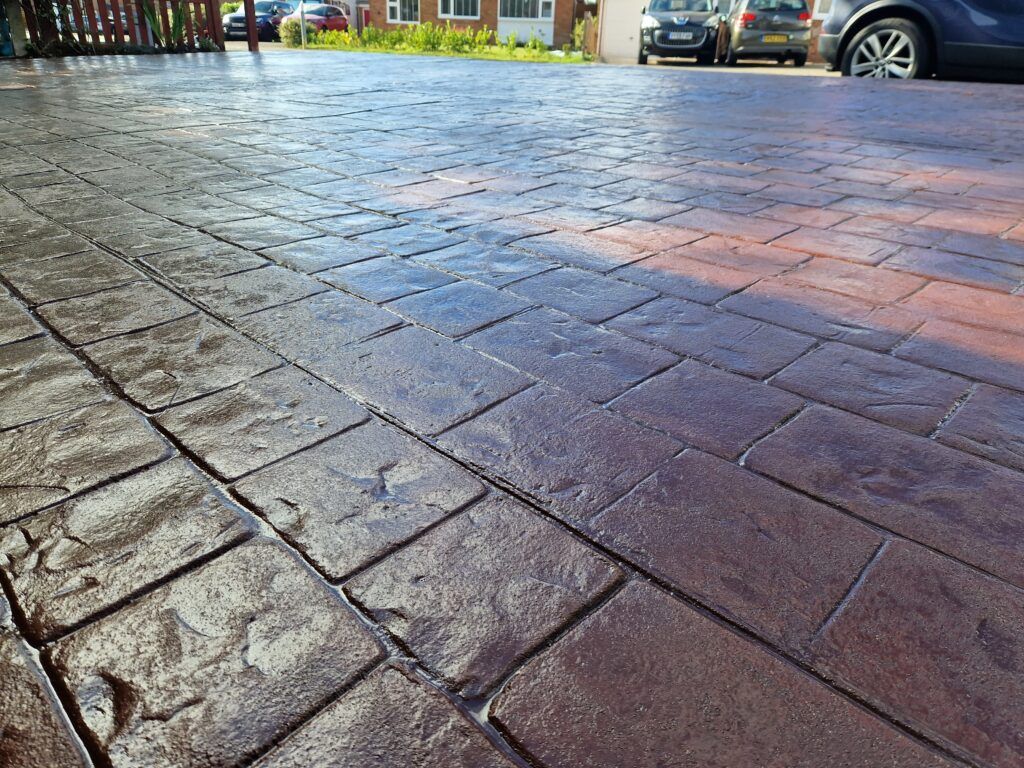
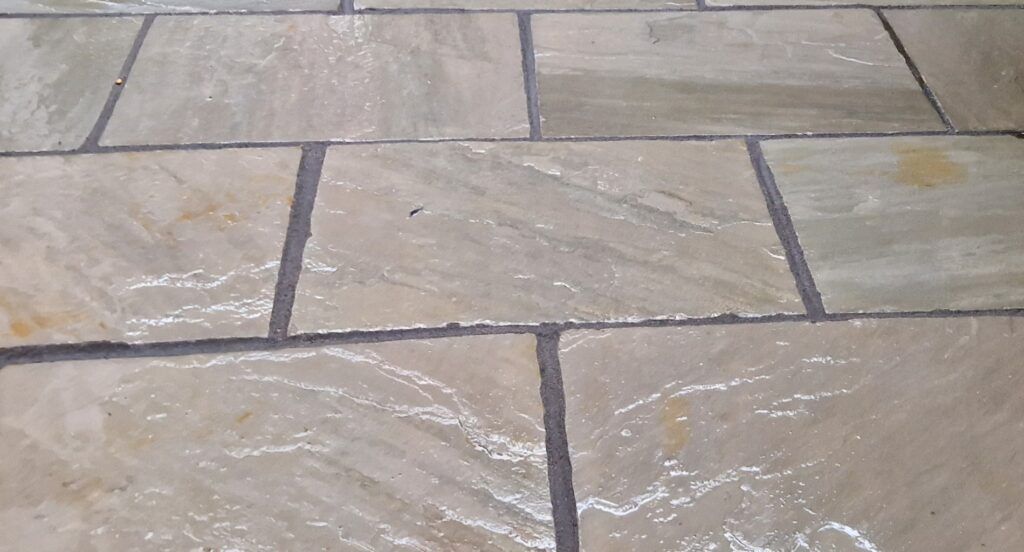
Sanded Block Paving
After cleaning and re-sanding your block-paved driveway, sealing it can help keep its fresh appearance for much longer. Although a newly sanded block-paved driveway looks great, a common issue is that the sand often starts to wash away, especially during the heavy rain cycles we frequently experience here in the UK.
In addition to keeping black spot and lichens at bay for longer, sealing a surface like this hardens the sealer, not only on top of the paving blocks but also within the gaps where the sand sits. This creates a protective layer between the sand and the elements, helping to keep it in place. As you can imagine, sealing is an ideal solution for a surface like this.
PIC: Pattern Imprinted Concrete
Pattern imprinted concrete (PIC) is a popular choice for driveways, typically sealed when first laid to give it the desired colour and shine. Unfortunately, over time, these surfaces can wear down and begin to discolour, particularly in areas where cars are frequently parked. A well-laid PIC driveway will last a good amount of time before needing a fresh layer of sealer.
Applying sealer to an older PIC driveway can bring it back to life. The amount of sealer required will depend on the level of wear and damage to the surface. Sealing not only revives the appearance of the driveway but also provides protection from the elements, as unsealed surfaces are more vulnerable to organic growth and deterioration.
Patio Paving Slabs
When it comes to enhancing and maintaining the natural beauty of most patios, applying a sealer can make a noticeable difference. A fresh layer of sealant not only brings out the rich colours of such material as sandstone but also adds a nice finish that can make the stones look as vibrant as they did from day one.
Without this protective layer, paving slabs like Indian sandstone can be quite porous, readily absorbing water and becoming a breeding ground for moss, algae, and other types of organic growth, especially during the damp UK weather.
Sealing patios helps prevent water from penetrating the slabs, reducing the risk of frost damage in winter. By creating a barrier over the stone’s surface and within its pores, the sealant protects against the constant wet and dry cycles that cause natural stones to weaken over time. This is especially useful for areas with frequent rain, as the sealer minimises water absorption, helping to maintain the stone’s structural integrity and appearance.
The Potential Considerations Of Sealing Driveways and Patios
The Cost Of Sealing
Unfortunately, sealing products aren’t cheap. In addition to the costly products required to properly seal driveways and patios, there’s also the expense of labour. Sealing is a meticulous task that can take considerable time to complete, depending on the condition and type of surface.
However, not all driveways and patios need the same amount of product; this depends on the surface type, which determines how much product and time are needed to achieve a professional finish.
Surface Slipperiness
Sealing a surface with a glossy finish can make many surfaces quite slippery, especially when wet. This is particularly true for surfaces like pattern imprinted concrete. To address this, it’s essential to use low-slip granules with the top coat of sealer. If you’re applying three coats of sealer, ensure the final coat includes the recommended amount of low-slip granules, which will help improve grip in wet conditions.
Keep in mind that low-slip granules don’t make the surface entirely slip-resistant. They’re classified as low-slip, meaning there’s still some slip risk, even when applied correctly.
Weather Dependancy
Sealing a surface successfully depends heavily on the weather. Unfortunately, in the UK, this can be challenging, as you need the surface to be not only dry on top but also as dry as possible beneath the surface.
Newly laid or recently cleaned patios or block-paved driveways tend to retain moisture below the surface. Applying sealer over a surface that hasn’t dried thoroughly can lead to issues, with the biggest warning sign being a chalky appearance known as efflorescence, caused by moisture reacting with the sealer.
A professional would always use a moisture meter to check levels before applying any sealer. If you’re in the middle of sealing and it starts to rain, stop immediately and hope the rain doesn’t turn into a downpour!
Improper Application
Applying sealer is similar to painting; if you apply it too thickly in certain areas, you’ll end up with a pooling effect. This means the sealer won’t adhere properly to the surface, and it will likely start chipping and flaking over time.
This issue is particularly common when sealing surfaces like pattern imprinted concrete, especially when using tints. Colour Tints naturally thicken the sealer, so it’s essential to be cautious with the amount of tint you add and to apply the sealer carefully to ensure an even finish.
Maintenance Over Time
Sealing won’t completely eliminate wear and tear. Even on a sealed surface, areas with high foot traffic or parked vehicles may still wear down over time. That said, a properly sealed surface should last for years before any maintenance is required. When maintenance is needed, it’s usually far less costly than the initial costs of sealing, as it may only involve applying another top coat to restore the original finish.
Summary Table
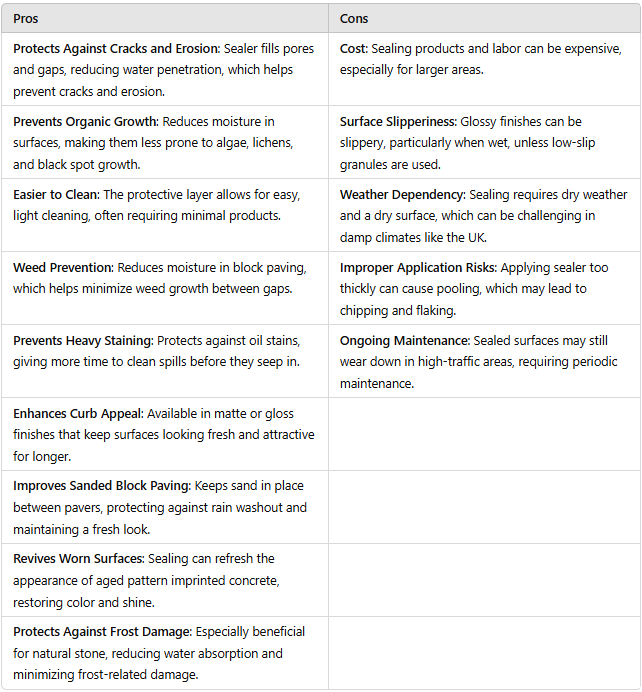
Trusted Suppliers
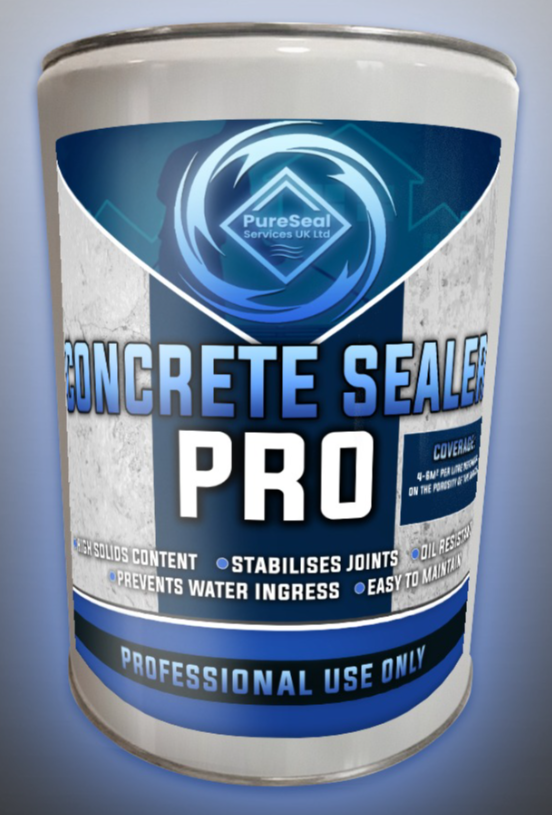
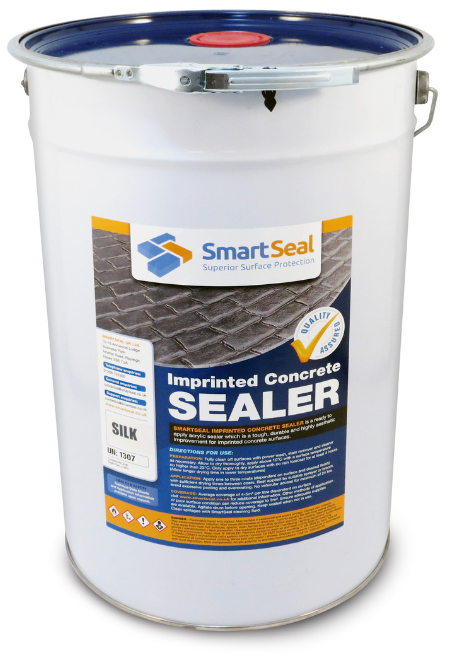
Above, we’ve listed two trusted suppliers: Pureseal Services LTD and SmartSeal. I’ve used both for a variety of cleaning and sealing materials and can’t recommend them highly enough. Their customer service and delivery times are consistently excellent.
Make sure to order the sealer that’s suited to the specific surface you’re working on. While I’ve referenced concrete sealers here, you’ll need to select the correct type of sealer depending on the surface for the best results.
Ready to protect and enhance your driveway or patio?
At MSRCleantech, we provide professional sealing services designed to enhance durability, curb appeal, and the long-term value of your surfaces. If you think this service could benefit you, don’t hesitate to reach out. Contact us today using the “Request a Quote” button below or email us at martin@msrcleantech.com.
Exterior Cleaning, England, South Yorkshire UK


